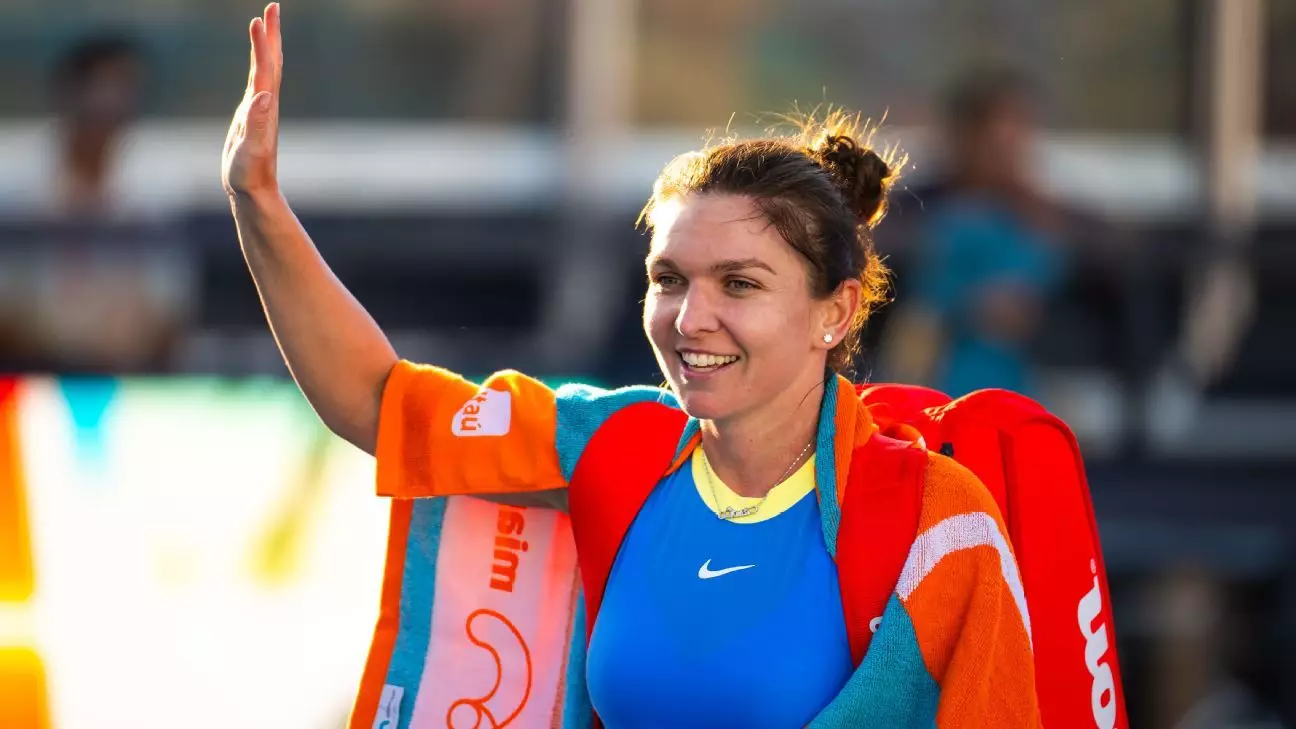Simona Halep, the former world No. 1 tennis player from Romania, has made the difficult decision to delay her participation in the upcoming 2025 season, notably skipping the prestigious Australian Open. This announcement, revealed through her social media accounts, highlights the ongoing struggles she faces due to knee and shoulder injuries. The former Grand Slam champion had recently been granted a wild card for the Australian Open qualifying tournament, emphasizing that she was ready to make a comeback after a tumultuous period in her career. However, her physical condition has hampered her aspirations, showcasing a reality that many athletes grapple with: managing injuries while vying for competitive success.
Halep’s career has faced significant setbacks recently, particularly due to a doping ban that saw her sidelined for a considerable time. Initially, in October 2022, she tested positive for roxadustat, a banned substance intended to enhance athletic performance by increasing red blood cell production. Following a rigorous appeals process, the International Tennis Integrity Agency reduced her suspension to nine months, yet her competitive spirit was undoubtedly dampened. Halep’s return to competitive play is still overshadowed by these incidents, as she currently finds herself ranked far beyond her former glories at 877th, a stark contrast to her past achievements.
Compounding her struggles is the mental burden that accompanies injuries and setbacks. Athletes often battle not only physical pain but also the psychological toll of extended absences from their sport. Halep’s announcement reflects a mature decision-making process. By prioritizing her health, she aims to ensure a more sustainable return to tennis, thus respecting her past accolades and the expectations placed upon her.
Despite the disappointing news for her fans and supporters, Halep has expressed plans to make a strategic comeback at her home event, the Transylvania Open, set for early February. This intention to return to the court emphasizes her commitment to her career and her desire to revitalize her competitive edge. Moreover, the support she has received from tournament organizers in Auckland and Australia illustrates the respect and recognition she maintains within the tennis community even amid controversies.
While Halep has faced criticism and challenges, her resilience remains a point of admiration. Athletes endure intense scrutiny, yet it is crucial for both fans and fellow competitors to recognize that injuries can alter the course of a career. The journey back to form is often long and fraught with hurdles, but with the right approach and optimal care, Halep has the potential to reclaim her status as a formidable force in the sport.
As the Australian Open approaches, the tennis world will undoubtedly miss Halep’s dynamic presence on the court. However, her decision to prioritize recovery over immediate competition is commendable. It is a reminder to the sporting community that true strength lies not only in physical prowess but also in the wisdom to recognize one’s limitations. With her sights set on returning in February, Halep’s story serves as an inspiring narrative of perseverance and hope in the face of adversity, echoing the sentiments of many athletes who have faced similar trials in their careers.

